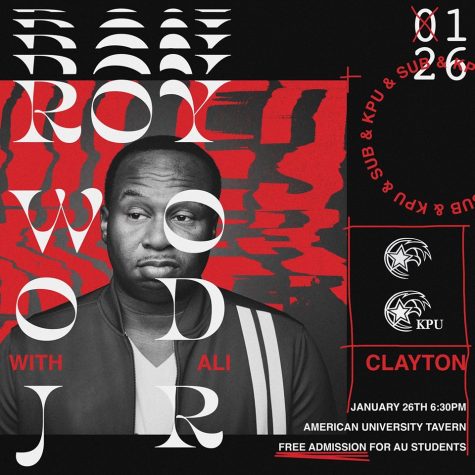AU's Drug and Alcohol Policy: Pass the Bottle, Bypass the Bowl?
Some freshmen begin their time at American University without having sipped a drop of alcohol or smoked a puff of weed. For the purposes of this article, “Sarah” is the name used to represent a completely made-up freshman who hasn’t encountered any drug. Sarah wonders what will happen to her classmates if they get caught drinking or smoking. She wonders what happens when people are found breaking the rules. She wonders what the rules even are. She wonders if booze or bud is worse at AU.
The Student Advocacy Center (SAC), a department within AU Student Government, informs and provides guidance to students who run into problems with the code of conduct. Adam Garrett, the director of SAC, explains how the organization guides students who have violated the Student Conduct Code (SCC) in academic or disciplinary issues. Garrett says the SAC sees an average of 40 people per semester.
Of these interactions, there are more alcohol violations than any other drug violations. AU’s marijuana policy is “a reflection of federal law,” Garrett explains. Marijuana use and possession is against federal law; that’s one of the reasons why, even though marijuana has been decriminalized in the District, it is still against university policy to possess any amount of marijuana on campus. Even those over 21 are not allowed to drink alcohol in the residence halls on campus.
Say Sarah becomes interested in exploring the different aspects of college – community service, club sports, volunteer organizations, social scenes, etc. She may even be curious about the neurological effects of marijuana and alcohol. But she is responsible and values her education, so she reads up on AU’s SCC, which is available on the school website. After finding a handy guide from SAC and having conversations with some approachable resident assistants (RA), Sarah decides that between marijuana and alcohol, the latter is given a lot more leeway.
Alcohol Violations:
Students found in possession of alcohol on campus for the first time will most likely have to, first, write an essay on the choices they made and why underage drinking is bad, second, attend a class on alcohol education and third, have a censure added to their disciplinary file. There is no parent notification or disciplinary probation. For second-time offenders, parents will be notified, and the student will be placed on disciplinary probation.
Probation means the student must not get in trouble for violating any policies, even a noise complaint. It lasts for a semester and, if broken, the student will be removed from campus and potentially suspended.
“After my student conduct meeting, I found out I have to attend a Marijuana 101 class and a decision-making class.”
Students at AU are given a free pass in terms of alcohol-related transports. One story of a freshman who was transported for alcohol poisoning exemplifies AU’s policy on allowing students to be transported without any punishment or reprimand.
“After I got transported I got an email about four or five days later,” the student said. “I met with this woman in the Wellness Center. She made sure that I knew what was wrong about alcohol and how I used it. She gave me a little chat that said how many drinks I can have and what my BAC should be. I also had to pay $1,200. Two weeks later I had to follow up with the woman. Nothing else happened after that.”
If Sarah happened to drink a little too much of the jungle juice at the frat on Friday night, started vomiting and ended up getting transported, she would get a parent notification and quite a large hospital bill. Sure, she would have to meet with some staff members to talk about what happened, but she wouldn’t have to worry about probation. This occurs because AU wants to make sure students are reporting situations when someone is in medical danger, and students are more willing to do that if there aren’t as many consequences.
Not too bad, right? Now let’s talk marijuana.
Marijuana Violations:
In most situations, individual are dealt with on a case-by-case basis. The university sets a clear distinction between the “presence” and “possession” of marijuana.
“Presence” means an individual is simply in the room or area where marijuana is located; nothing handled or inhaled. “Possession” means the marijuana was ingested, in contact with, or purchased.
The punishment for students found in the presence of marijuana or any paraphernalia for the first time is, first, a required paper on the effect of the drug and, second, a censure added to the person’s disciplinary record. For first-time offenders of marijuana possession, the penalties include an entire semester of disciplinary probation, a marijuana education class, parental notification, a paper and a meeting with a health educator. If the student is caught in possession of marijuana a second time, they will be removed from campus. The only way parents are not notified in marijuana-related incidents is if the individual at fault is over the age of 21.
Let’s say Sarah was interested to see what marijuana was like, and she goes to hang out with some people that use the drug. Pretend Sarah is in her new friend’s room and marijuana is out on the table. The RA comes in after smelling the drug.
Marijuana violations are much more severe than alcohol ones. Another AU student was smoking in his dorm room and was then caught by an RA.
“The RA smelled weed in the hallway and knocked on the door,” he said. “After my student conduct meeting I found out I have to attend a Marijuana 101 class and a decision-making class. My parents are going to be notified. The worst part is that I’m on disciplinary probation for about a semester.”
But even if Sarah didn’t put a finger on a trace of marijuana, she would be found guilty of being in the presence of marijuana. If Sarah found herself in the same position again, she could be placed on probation and her parents would be notified.
Sarah has a strong feeling that she’s going to stick to vodka and beer. Much less risky.






